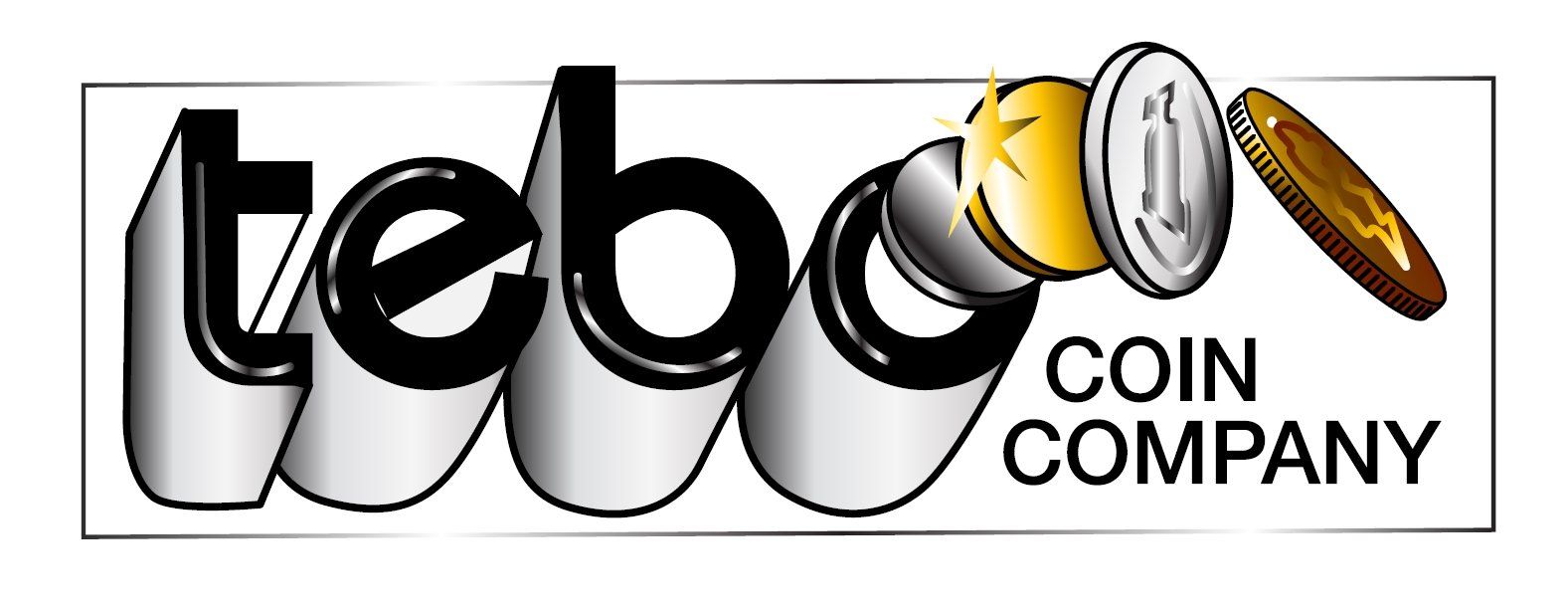 2863 28th St, Boulder, CO 80301 |
2863 28th St, Boulder, CO 80301 |  Info@tebocoin.com
Info@tebocoin.com FAQS
Frequently Asked Questions
Q. Is there any gold in the Sacajawea or Presidential "gold" dollars?
A. No, the composition of the Sacajawea and Presidential dollars contain no gold at all. They are composed of 88.5% copper, 6% zinc, 3.5% manganese, and 2% nickel. This includes the solid copper core as well as the alloyed outer layer of the coin.
Q. Are the statehood quarters worth anything beyond face value and are they going to be going up in value?
A. At the present the statehood quarters do not have a significant premium beyond their face value. It is doubtful that the quarters will have any significant value in the future. The U.S. mint produced so many of them that there is little chance they will increase in value.
Q. On the front of my peace dollar there is a V in TRUST. Is this an error?
A. This is not an error. The peace dollar uses a roman typeface. In the Roman alphabet, there is no U so a V is used in its place.
Q. What is a proof coin, and how does it differ from an uncirculated coin?
A. A proof coin is a coin produced by the mint that is intended to be a collector piece. The mint first polishes the blank planchet and the dies used for the stamping of the coin. The coin is then stamped multiple times and very carefully handled all through the process. This produces a coin that has a much finer finish and much stronger detail than the coins that are produced for circulation. Usually, on the newer proofs, the background is highly polished and the raised areas have a matte finish.
Q. Can bullion gold and/or silver be seized by the government?
A. The ultimate answer to this question is yes, the government has the power to seize gold and/or silver at any time if they choose to. However the likelihood of this happening again is very slim. What most people have heard about is the seizure of gold that happened in 1933. The truth is that the government never really seized any gold from anyone. They simply requested that anyone with bullion gold of any kind, turn the gold in to the treasury so as to protect the country in its time of financial distress. Gold was bought from the people who turned it in at market price, and people were allowed to keep any gold coins that had significant collector value. Also the current view point is that, were the government to ask citizens to turn in their gold in this day and age, there would be far less cooperation and the governmental action would go nowhere. So, in short, the possibility of governmental seizure should not keep you from buying gold. Seizure is not, in my opinion, a course of action that the government would choose to take. For a very in depth article on this subject we recommend you check out Mike Fuljenz's article: Can the U.S. Government Confiscate Your Gold Coins? Or for a history of gold coins in general see the article here.
Q. Should I clean my coins?
A. As a general rule, the answer is a resounding 'No!' Successful coin cleaning is a learned process requiring a certain degree of expertise and should be approached with caution. Most numismatists prefer a coin that is in its original state of preservation, including the change in color which often comes with age. The removal of common dirt and corrosion, however, can be justified in some cases. We recommend that you practice your cleaning technique on common coins before operating on scarce or rare pieces. Improper cleaning of true collector coins can decrease their value exponentially.
Q. I have a dollar bill with a blue seal on it instead of the normal green seal what is this?
A. What you have is a silver certificate. This is a note that dates back to the times when the U.S. was still on the silver standard, meaning that money was backed by actual silver in the national reserve. A $1 silver certificate entitled the owner to $1 worth of silver if he or she so chose. However the U.S. is no longer on the silver standard so a $1 silver certificate is no longer worth its value in silver. The notes do have a small amount of collector value, though.
For answers to questions that we may not have covered please contact our knowledgeable staff at 303-444-2646.
Content, including images, displayed on this website is protected by copyright laws. Downloading, republication, retransmission or reproduction of content on this website is strictly prohibited. Terms of Use
| Privacy Policy
© 2022 Tebo Coin Company

